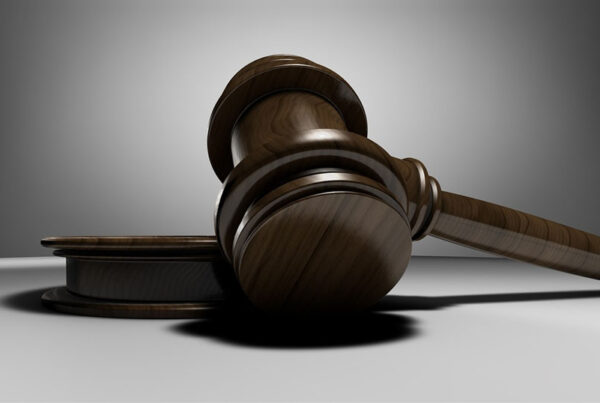WHITE COLLAR CRIMES
When is Bribery a Federal Crime?
Under federal law, bribery is comprised of a broad range of acts. It includes not only the offering and giving, but also the receiving and soliciting of anything of value to influence the conduct of any individual with a public or legal duty—a private favor for an official act. Illicit bribery is distinguished from gifts, rebates, discounts or incentives that are offered to a group or class of individuals on an equitable basis and without the dishonest intent to influence conduct contrary to an existing duty.
Similarly, the amount or value of the object in question in a bribery investigation also varies. Some cases involve relatively small amounts in the thousands or tens of thousands of dollars, while others are valued in the billions. The Department of Justice (DOJ) has an arsenal of statutes that allow it to prosecute a wide variety of offenders under equally diverse circumstances. Although the U. S. Sentencing Commission data show that bribery offenses through the country have decreased by over 20% between fiscal year 2015 and 2019, the federal government continues to prosecute hundreds of bribery cases every year.
Under what statutes can an alleged offender be charged?
Title 18, chapter 11 of the United States Code (U.S.C.) contains the core body of statutes used to prosecute alleged bribery offenders, including statutes that apply to federal officers and proceedings (primarily 18 U.S.C. §201) and financial institutions (18 U.S.C. §§215 and 225).
However, related statutes under which alleged offenders may be charged include 18 U.S.C. §§152(6) (bankruptcy bribery), 666 (federal program fraud), 1951 (Hobbs Act) and 1952 (Travel Act). Additionally, those accused of bribery of jurors may be charged under a few of the statutes criminalizing obstruction of justice – 18 U.S.C. §§ 1503 (influencing or injuring officer or juror generally), 1504 (influencing juror by writing) and 1505 (obstruction of proceedings before departments, agencies and committees).
What acts are prohibited and what are the possible legal penalties for violation?
Each bribery statute may differ in terms of the nature of the briber (or gratuity), type of actors it targets and the potential penalties a convicted defendant faces. To convict an alleged offender, the government must prove each element of a given statute beyond a reasonable doubt.
18 U.S.C. §201 – Bribery of public officials and witnesses
18 U.S.C. §201(b)(1) criminalizes the bribery of a public official. To convict a defendant under this statute, the prosecutor must show the defendant directly or indirectly promised, gave or simply offered something of value to a public official. The prosecutor must also show the defendant acted corruptly and with the intent to influence an official act.
18 U.S.C. §201(b)(2) prohibits the receipt of a bribe by a public official of the United States, or someone acting on behalf of the United States. Here a conviction requires the government show the defendant demanded or received something of value in exchange for being influenced in the performance of an official act.
18 U.S.C. §201(b)(3) criminalizes bribery of a witness. To convict an alleged offender the federal prosecutor must show that the alleged witness was to be a witness under oath at a trial, hearing, or other proceeding, before any court, any committee of either or both Houses of Congress, or any agency, commission or officer authorized by the laws of the United States to hear evidence or testimony. The prosecution must also prove the defendant gave, offered or promised something of value to the witness, and the defendant did so to influence the Witness’s testimony or the Witness herself from the proceeding described.
18 U.S.C. §201(b)(4) prohibits a witness from soliciting a bribe. For a conviction under this statute, the federal prosecutor must show the defendant was a witness as described in the section immediately above and the defendant requested, accepted or agreed to receive something of value, and did so in return for being influenced in their testimony at, or absence from, the proceeding.
The 18 U.S.C. §201(c) statutes criminalize gratuities, which are related to, but distinct from bribes. Under federal law, a gratuity is essentially a gift for a past or future official act. What distinguishes a bribe from an illegal gratuity is the element of intent. Whereas bribery requires the government to show the defendant had the intent to influence (or to be influenced in) an official act by giving or accepting something of value, to prove an illegal gratuity the government needs to show only that the gratuity was given or accepted for or because of an official act.
Similar to the four bribery scenarios of the §201(b) statutes, the §201(c) statutes address the giving or receiving of gratuities by public officials (§§201(c)(1)(A-B)) and by a witness (§§201(c)(2-3)).
Defendants convicted of a §201 offense face up to 15 years in prison for a §201(b) offense and up to two years for a §201(c) offense. Defendants may also be required to pay fines up to three times the monetary equivalent of the bribe or gratuity. If that amount exceeds $250,000, it needs to be pleaded and proved to a jury.
18 U.S.C. §215(a) – Bribery of a bank officer
To convict a defendant of a 18 U.S.C. §215(a)(1) offense, a federal prosecutor must prove the defendant gave, offered or promised something of value (in excess of $1,000) to another with the intent to influence or reward an officer or agent of a financial institution in connection with a business transaction of that institution.
18 U.S.C. §215(a)(2) criminalizes the solicitation, acceptance or agreement to accept something of value (in excess of $1,000) by an officer or agent of a financial institution for his/her/their own benefit or the benefit of another. The prosecution must show also that the defendant did so knowingly and with the intent to be influenced or rewarded in connection with a business or transaction of the institution.
Defendants convicted of a §215 offense face up to one year in prison if the monetary value of the bribe does not exceed $1,000.
For bribes valued at more than $1,000, the maximum prison term jumps to 30 years.
Defendants might also be ordered to pay fines up to $1,000,000 or three times the value of the bribe, whichever is greater.
Contact an Experienced Bribery Criminal Defense Attorney Today!
If you or a loved one are facing a bribery charge or other federal criminal charges, it is essential to act quickly and get the help of experienced federal bribery defense attorneys. At Azhari LLC, our experienced federal criminal defense attorneys have the legal knowledge and resources to build a strong defense and protect your rights.
White Collar Crimes
Recent Posts






